Wedding Etiquette Made Simple: What You Really Need to Know
Planning a wedding feels like juggling a million details, and etiquette can add another layer of confusion. The good news? Most rules are easy to follow once you break them down. Below you’ll find the most common questions couples face, plus clear, no‑fluff answers that keep the focus on enjoying your day.
Invitation & RSVP Basics
First impression starts with the invite. Keep it straightforward: include the couple’s names, ceremony time, venue address, and dress code. If you’re using a wedding website, add the link right on the card – guests love one‑click details.
Save‑the‑dates? Send them out 8‑12 months before the big day, especially if you have out‑of‑town guests. The rule of thumb is: every person receiving an invitation gets a save‑the‑date, even if they’re on the plus‑one list.
RSVP cards often have a mysterious “M” printed on them. That simply stands for “Mail” – it tells guests how to respond. No need to stress; just write the date you’re responding by, tick the box for the number attending, and drop the card in the pre‑paid envelope.
When you set a RSVP deadline, give guests at least three weeks. That gives you enough time to confirm numbers with the caterer and finalize seating. If you get a late response, politely follow up – a quick text or call works better than another paper card.
Gifts, Payments, and Traditions
Who pays for the wedding? Traditionally, the bride’s family footed the bill, but today it’s a mix of both families, the couple, and even friends chipping in. The safest approach is an open chat early on: list the big tickets (venue, food, dress) and see who can contribute. Transparency avoids awkward money talk later.
Parents gifting the groom? It’s becoming common for parents to give their son a thoughtful present on the wedding day – a watch, a custom tie, or even a sentimental keepsake. The gesture shows support without breaking the bank.
Ring exchange order used to be set in stone: the man proposes, then the woman accepts. Nowadays many couples swap rings at the same moment or flip the tradition entirely. The key is picking what feels right for you, not feeling forced to follow an old script.
When it comes to thank‑you notes, send them within two weeks of the wedding. Mention the specific gift and how you’ll use it – it shows genuine appreciation and keeps relationships warm.
Finally, remember that etiquette is a guide, not a rulebook. If a tradition doesn’t match your style, feel free to adapt it. Your guests will respect authenticity more than a perfect checklist.
With these basics covered, you can focus on the fun parts: tasting cake, picking music, and dancing the night away. Keep the advice handy, refer back when doubt creeps in, and enjoy the journey to your big day.
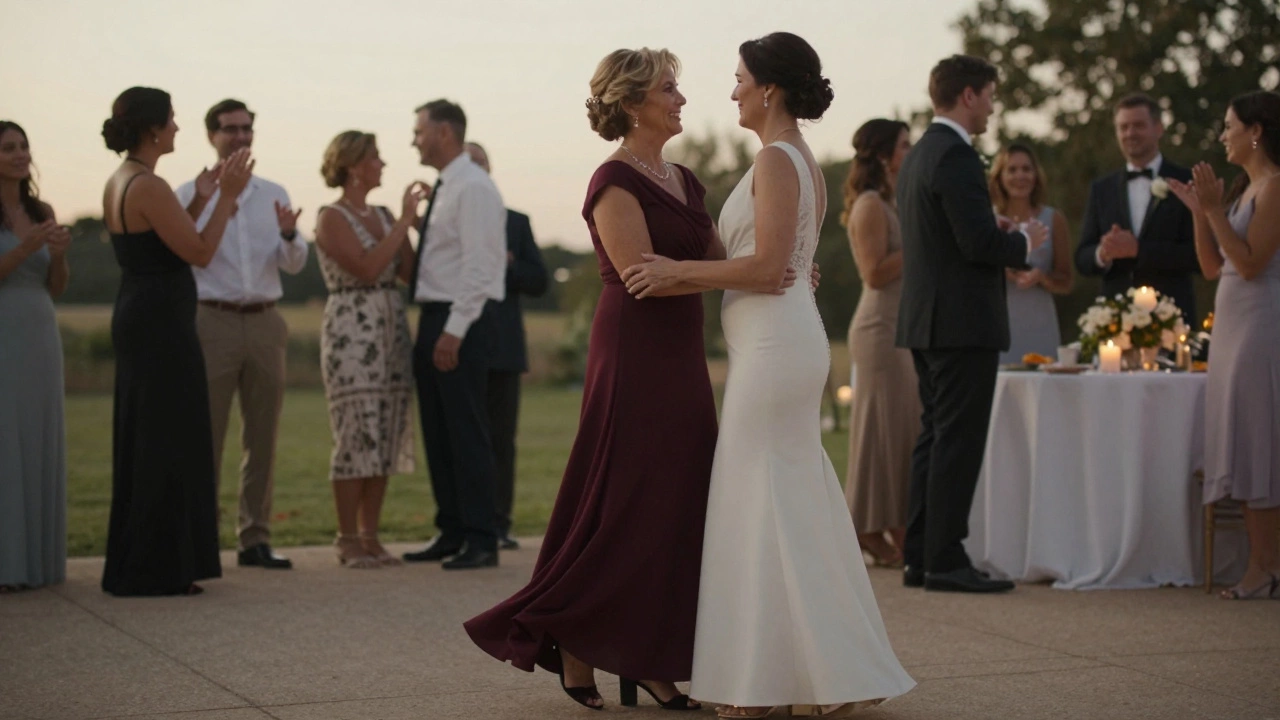
- Jan, 8 2026
- Comments 0
What Should a Mother of the Groom Not Do? Essential Do's and Don'ts for Wedding Day Etiquette
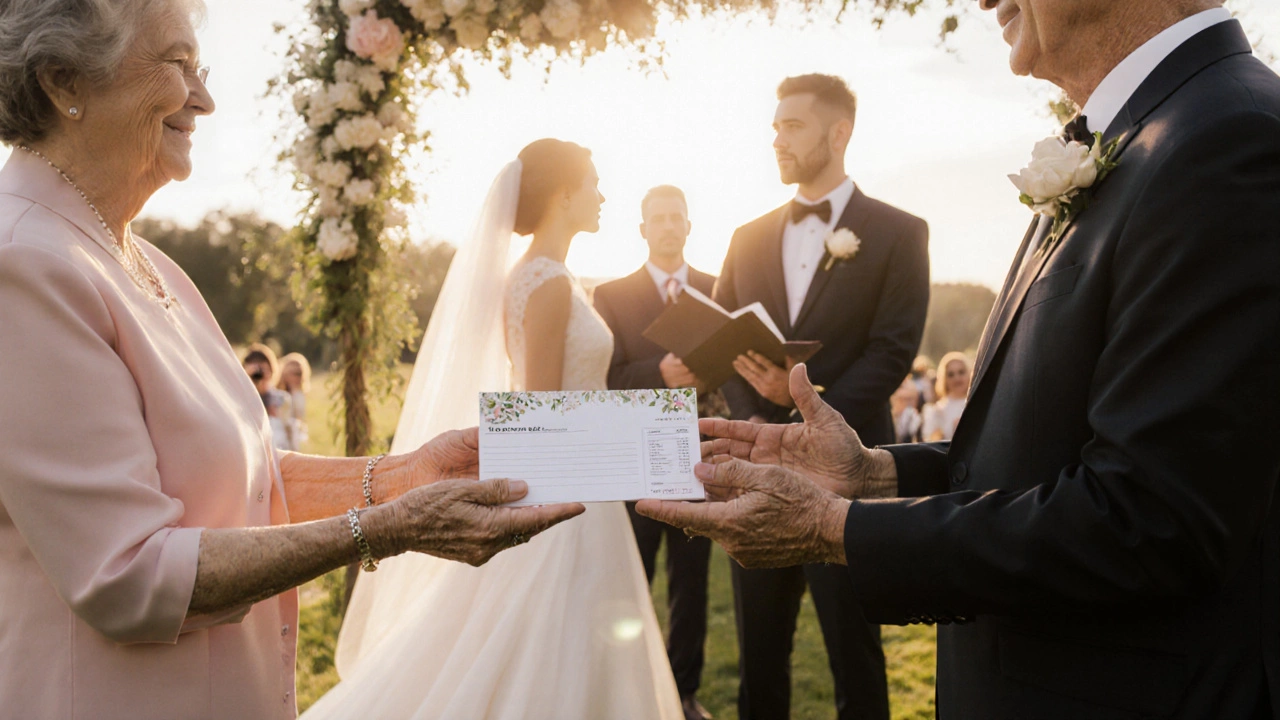
- Oct, 8 2025
- Comments 0
Should Parents Give a Wedding Gift When They Paid for the Wedding? Etiquette Explained

- Jul, 3 2025
- Comments 0
Wedding Car Decoration: Who Is Responsible and What You Need to Know

- Jun, 8 2025
- Comments 0
How Long Before a Wedding Should You Send Invitations?
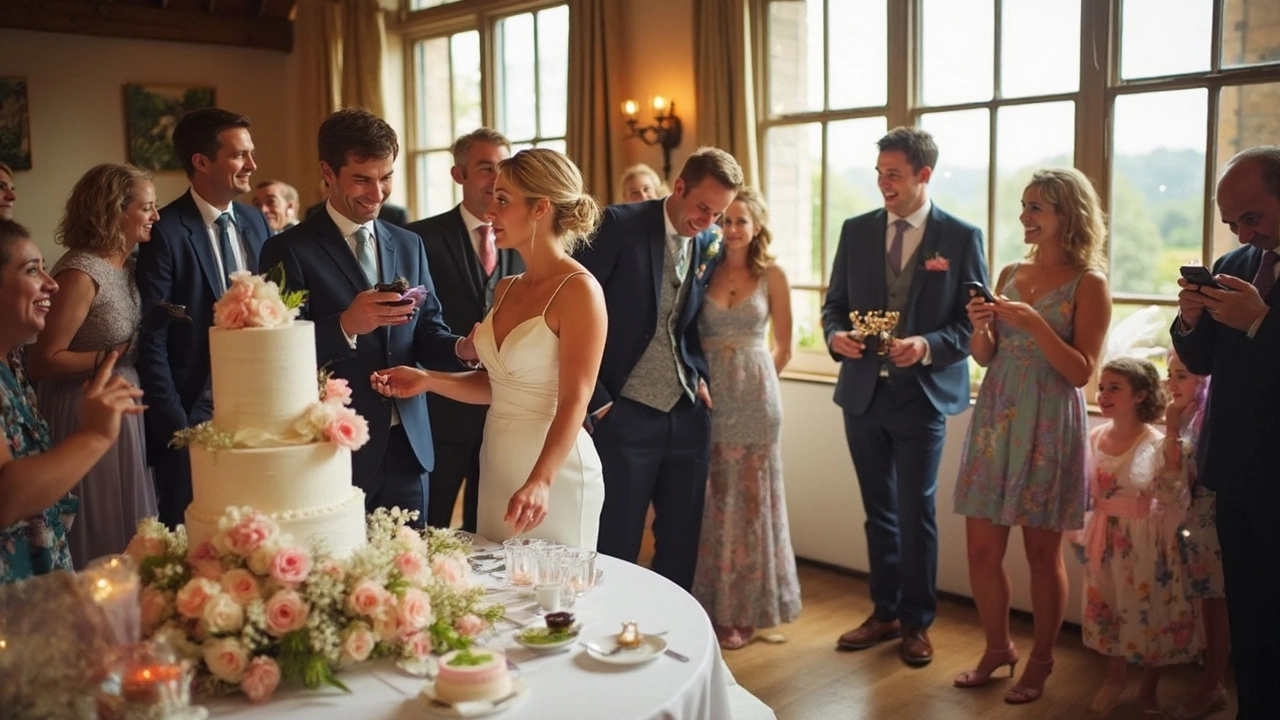
- May, 23 2025
- Comments 0
Why Do Grooms Shove Cake in Brides Face? Wedding Cake Traditions Explained
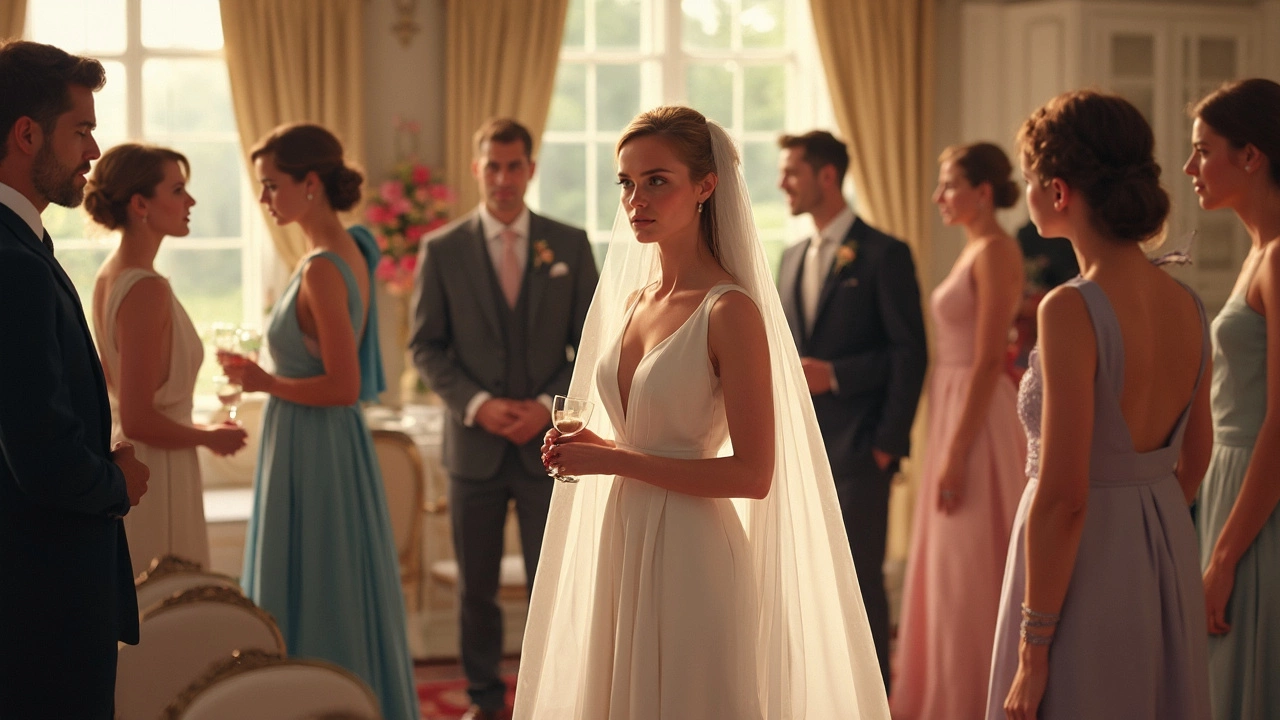
- May, 9 2025
- Comments 0
Taboo Colors for Wedding Guests: What Not to Wear
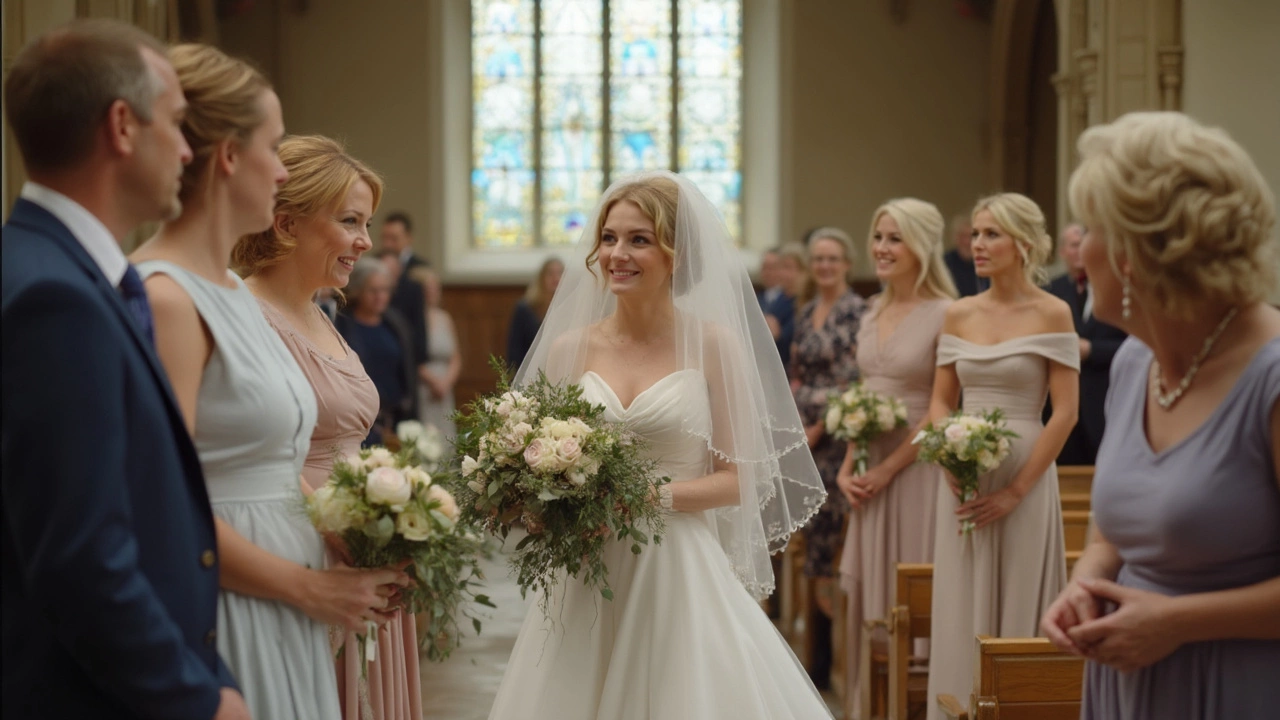
- Apr, 18 2025
- Comments 0
Who Holds the Bouquet for a Bride? Wedding Flowers Etiquette Explained

- Dec, 14 2024
- Comments 0